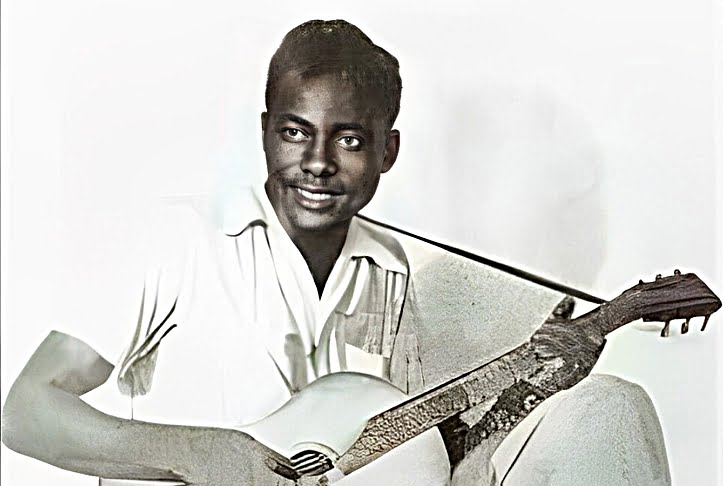
Guitar Maestro of the Congo: The Legacy of Henri Bowane in Rumba
The Birth of a Congolese Legend
Henri Bowane, born in 1926 in the
Belgian Congo, was a pivotal figure in the evolution of Congolese Rumba. Known for his exceptional guitar skills, Bowane was not just a musician but a pioneer who helped shape the sound that would come to define an entire genre. His influence spanned decades, from the late 1940s until his death in 1992, marking him as one of the most important contributors to Congolese Music.
Rise to Fame in Léopoldville
Bowane’s journey to musical prominence began in the bustling city of Léopoldville, where Cuban-style music blended with Lingala and other pan-Congolese styles. As a guitarist, singer, and bandleader, Bowane’s talent quickly caught the attention of the emerging music scene. In 1947, Ngoma Records paired him with Wendo Kolosoy, another rising star. Together, they created a unique sound that combined Afro-Cuban rhythms with traditional Congolese elements, laying the foundation for what would later be known as Congolese Rumba.
The Breakthrough Hit: “Marie-Louise”
In 1948, Bowane co-wrote “Marie-Louise” with Wendo Kolosoy, a song that would become the first international hit of Congolese Rumba. The track, with its infectious rhythm and captivating story, resonated across West Africa. However, its success was not without controversy. The song was rumored to possess “satanic” powers, leading to Wendo’s brief imprisonment and excommunication from the Catholic Church. Despite the drama, “Marie-Louise” solidified Bowane’s status as a musical innovator.
The Birth of Sebene and the Rise of Soukous
Bowane’s contribution to Congolese music extended beyond his guitar playing. He is credited with popularizing the “sebene,” a long guitar solo that became a hallmark of Congolese Rumba. The sebene’s intricate melodies and rhythmic complexity helped evolve the genre into what would later be known as Soukous. By the 1950s, Bowane had moved to the Loningisa label, where he became a dominant figure, influencing a new generation of musicians and helping to establish Leopoldville as the epicenter of African Music.
A Pioneer in the Congolese Music Industry
Throughout his career, Bowane was more than just a musician; he was a driving force in the Congolese music industry. He founded the premier nightclub in Leopoldville, Quint, which became a hub for the city’s musical elite. In 1976, he established Ryco Jazz, a record label that further cemented his legacy. That same year, Bowane released his only solo album, “Double Take – Tala Kaka,” showcasing his enduring talent and influence.
Legacy and Lasting Impact
Henri Bowane’s influence on Congolese rumba and African music as a whole is immeasurable. He was a mentor to many, including the legendary Franco Luambo, and his innovative approach to music set the stage for future generations. Bowane’s ability to blend traditional Congolese sounds with Afro-Cuban rhythms created a unique and enduring musical style that continues to inspire musicians around the world. Even decades after his death in 1992, Bowane’s legacy lives on, a testament to his role as a true pioneer of Congolese rumba.



